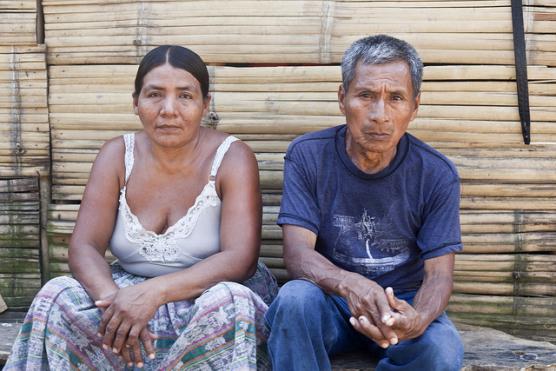Dear Vice President Biden,
Hi! How are you? May I call you Joe?
Joe, I am writing in response to your opinion-editorial published on January 29, 2015 in The New York Times.
I wholeheartedly agree with your statement, “Security makes everything else possible.”
Without security and safety, no diplomacy or peacemaking is possible. Without clear, open communication and transparency, there will be no resolution to the complex, interrelated security, governance and economic challenges in Central America.
I am a concerned American citizen living in Guatemala. Despite the high level of poverty and crime, which exists in pretty much all nations, the people here love their country and their families. Only under severe financial distress do they contemplate the extreme tactic of illegally entering the United States to seek better paying work. Those who do go are buying false dreams of prosperity promoted by our mainstream media and patronizing politics.
Corruption—total lack of transparency—is the biggest problem in Guatemala. From the president to the police, no one spends funds like they say they will.
2015 is an election year in Guatemala, and the cash that comes into the country now will mostly be used to buy votes.
The military is in power; Otto Perez Molina has allowed new foreign mining and energy projects that exploit Guatemalan resources, robbing the local people of their land and autonomy.
Peaceful protesters are commonly shot or arrested as political prisoners without cause or trial.
Subsistence farming has been replaced by export farming, run by and benefiting North American corporations. A laborer’s pay is around eight dollars a day, at best. The people accept “gifts”—a.k.a. bribes for their votes—because they are poor and have needs.
The image of the Guatemalan farmer is one of abject poverty and malnutrition; if one desires to escape this fate, only the North can offer hope. The truth may be just the opposite: farmers with land have fed their families for generations without amenities from the outside world.
The national corn and vegetable market has been nearly wiped out in the last decade, due to the distribution of foreign GMO seed by Walmart. Family farms, which only a few years ago produced a variety of foods year-round for local consumption, have been mortgaged to harvest one or two monocrops a year.
USAID is sending more money to politicians in the name of environmental rescue that will surely be misspent. At Lake Atitlan, we have an ongoing crisis with cyanobacteria contamination. Local mayors take money to build unsuccessful water treatment plants, while agricultural chemicals, soaps and family waste from villages not connected to a sewage system flood the lake. The arsenic level is rising from private drilling by businesses not regulated by any environmental agency.
As resources degrade, conflict escalates.
With the billion dollars available to help save Central American economies, can we direct those funds towards sustainable environmental, educational and agricultural community projects? The invested money needs to incorporate lasting development that will allow people to keep their homes and dignity as well as grow crops and produce food for their families.
We must support small sustainable farmers and natural biodiversity.
On a positive note, communications have improved, connecting campesinos with farmers and indigenous communities around the globe, enabling them to realize that their plight is universal and that they are not alone.
There is growing respect for their ancestral knowledge and survival skills.
All the above being said, I do not believe that the intentions of the Obama Administration are invested in evil. I have hope for change.
Please, Joe, look at the whole picture. If there is money to invest in positive futures, think of all the options and do your best to put it into better ideas for lasting development that will allow people to keep their homes and their dignity, grow their crops and produce plenty of food for their families.
We must support small sustainable farmers and cultivate natural biodiversity.
It could all be solved so simply.
Thank you for your consideration.
Sincerely,
Michelle
















